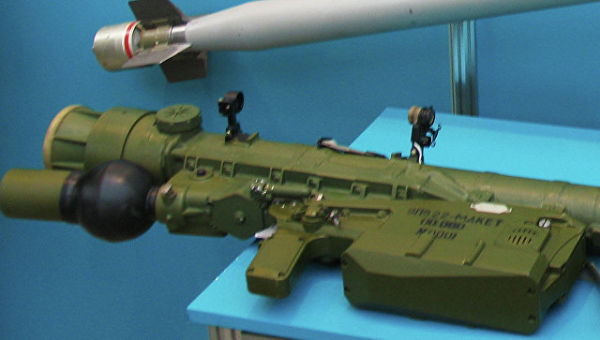TSAMTO, April 6. The Indian Ground Forces have adopted a batch of Igla-S portable anti-aircraft missile systems, which were recently acquired in Russia as part of the emergency procurement procedure.
According to The Hindu, the contract was signed in December 2020, and the equipment was delivered by December 2021. The agreement included 24 launchers, 216 missiles and test equipment. The cost of the order is unknown.
The purchase was carried out within the framework of the extraordinary financial powers of the deputy commanders of the types of troops to replenish ammunition without conducting tender procedures (in the amount of up to 3 billion rupees). Such powers were granted for the first time after the airstrike on Balakot in February 2019 and further expanded after the confrontation with China in Eastern Ladakh in May 2020.
The publication notes that a much larger project for the purchase of ultra-short-range air defense systems (VSHORAD), where the Russian Igla-S MANPADS won, is still under consideration by the Indian Defense Ministry.
The Igla-S delivery project is included in the list of other major programs as part of a general review of all planned and ongoing direct import transactions by the Indian Ministry of Defense. Their discussion is still ongoing.
As previously reported by TSAMTO, in November 2018, the Indian Ministry of Defense selected the Russian 9K338 Igla-S MANPADS as the winner of the tender for the supply of short-range anti-aircraft missile systems (VSHORAD). JSC Rosoboronexport was also ahead of the MBDA group (France), which participated in the competition, which offered the Mistral-2 MANPADS, and the Swedish SAAB with the RBS-70 Mk MANPADS.2. The cost of selling 5,175 missiles and 800 launchers was previously estimated at $1.5 billion. However, an official contract has not yet been concluded.
For reference:
Against the background of Russia's current special operation in Ukraine and the subsequent Western sanctions, India and Russia are working on options for widespread use of rupees/rubles for payments. The Ministry of Defense also assesses the impact that such a scheme will have on the timely execution of other transactions, as well as on the stable supply of spare parts and equipment support.

